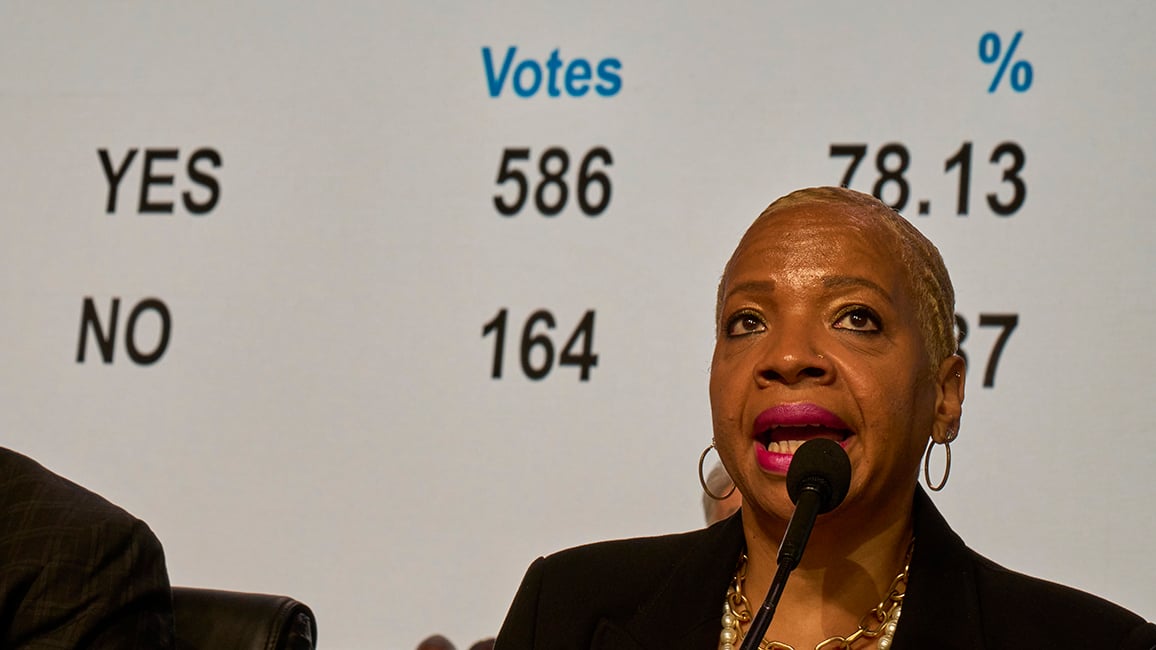General Conference Passes Regionalization Legislation
Bishop Tracy Smith Malone surveys the results of a delegate vote in favor of a worldwide regionalization plan as she presides over a legislative session of the 2024 United Methodist General Conference in Charlotte, N.C., on April 25, 2024. (UM News)
Ratification will require approval by two-thirds of the aggregate votes from the annual conferences
This morning, delegates to General Conference voted overwhelmingly to approve regionalization, taking steps toward a more equitable United Methodist Church that respects the value and diversity of all members of our worldwide denomination.
“Leading up to this moment, there was significant work amongst the global church, amongst central conference brothers and sisters and siblings, in developing this, in bringing these petitions together and in bringing their predecessors to the table to get us to this moment,” said Kelly Carpenter, NTC lay delegate lead. “And then on the floor today, we heard many voices of affirmation, speaking for this work of regionalization, coming from our central conferences.”
The petition would rename the church’s current central conferences as regional conferences and create a United States Regional Conference, giving all regions agency and self-determination within the connectional system.
“[This petition] makes sure that the regions of the world are on more equal ground, that we’re not such a U.S.-centric church,” said Rev. Dr. Clayton Oliphint, NTC clergy delegate lead. "As the church develops throughout the world, we’re giving greater voice and greater equality to voices outside of the United States.”
Because the petition amends the denomination’s constitution, it required a two-thirds majority vote of the General Conference to pass, achieved this morning. Ratification will require approval by two-thirds of the aggregate votes from the annual conferences, which will come over the next 12 to 18 months.
For Oliphint, today’s vote on regionalization is especially gratifying, as it connects to work his father started more than three decades ago.
“My father proposed regionalization, or a form of it, at the 1988 General Conference. So this has been proposed for a long time,” said Oliphint. “For me, when that vote went up, I thought about my dad and thought, ‘Okay, that one’s for you.’ ”
Published: Thursday, April 25, 2024

